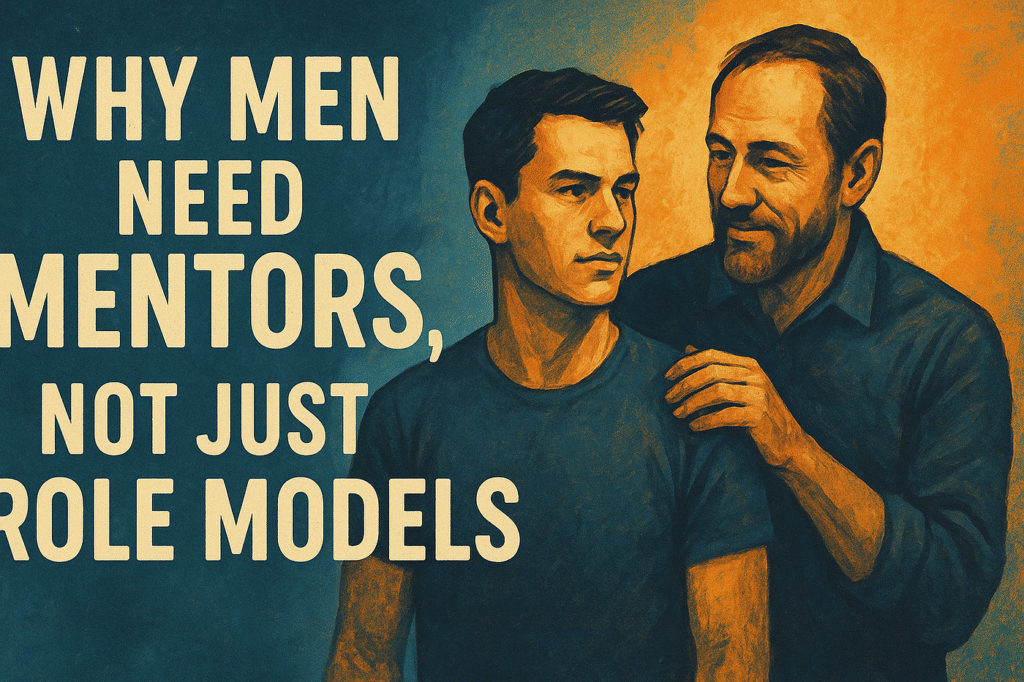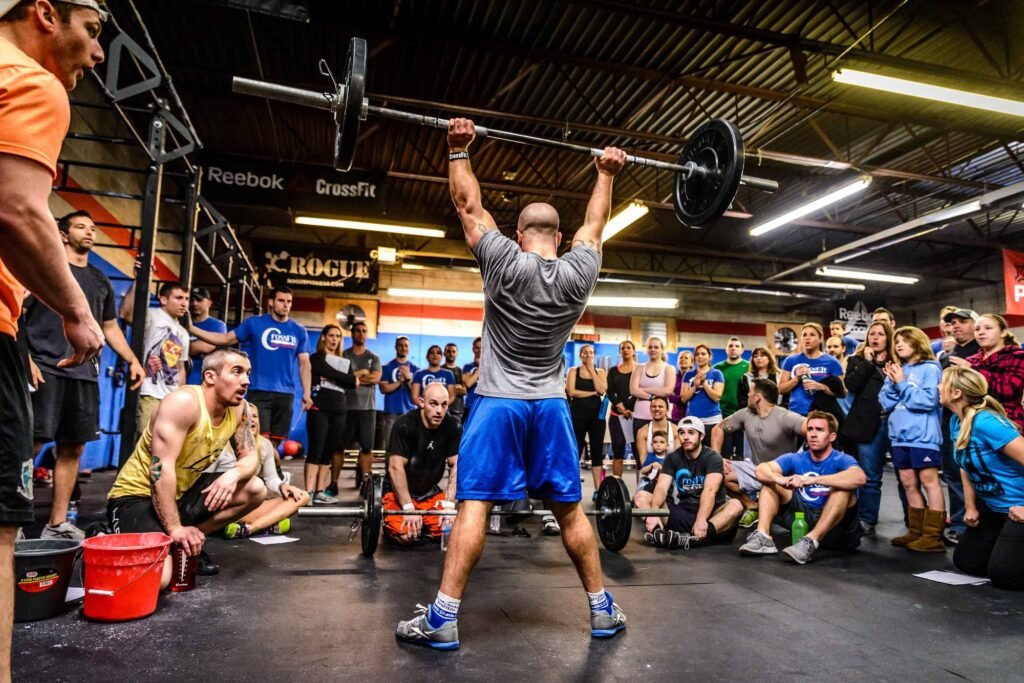If You’re Over 30, You’re Not Behind—You’re Building Deeper
You’re over 30, maybe staring down a career pivot, a life reset, or a nagging sense that you’re meant for more. Society might whisper that you’ve missed the boat—that mentorship is for fresh-faced grads or corporate climbers. That’s nonsense. In 2025, modern mentorship is about finding someone who’s walked the path you’re on—someone real, battle-tested, and aligned with your vision. It’s not about formal programs or cookie-cutter coaches; it’s about connection, clarity, and purpose. Whether you’re a late bloomer, switching industries, or chasing a deeper sense of self, here’s how to find a mentor who gets it—and make the relationship thrive.
1. Why Modern Men Still Need Mentors (Especially After 30)

The myth that mentorship is only for early-career 20-somethings is outdated and limiting. Men over 30 face unique challenges that demand guidance with depth, not just a playbook. Here’s why mentorship matters now more than ever:
- Late Bloomers Aren’t Behind: If you’re still figuring out your path, you’re not failing—you’re gathering experience. A mentor helps you turn that raw material into a clear direction. For example, a 35-year-old who left a dead-end job to start a business might need a guide to avoid common pitfalls, not a lecture on “starting earlier.”
- Career Pivoters Need a Roadmap: Switching from finance to tech or corporate to creative? A mentor who’s navigated a similar shift can share hard-won lessons—like how to leverage transferable skills or network in a new industry without starting from zero.
- Self-Reinvention Demands Perspective: After 30, growth often means redefining who you are, not just what you do. A mentor provides an outside lens to clarify your values, whether it’s balancing ambition with family or finding purpose beyond a paycheck.
In 2025, mentorship isn’t about age gaps or rigid hierarchies—it’s about alignment. The right mentor sees your hunger and helps you channel it, no matter where you are in life. Data backs this up: a 2023 LinkedIn study found that 76% of professionals over 30 who had mentors reported higher job satisfaction and faster career growth compared to those without.
2. The 3 Types of Mentors Most Men Overlook
Mentors don’t always look like the stereotypical “guru” with a corner office. The most impactful ones might already be in your life, hiding in plain sight. Here are three types of mentors men over 30 often ignore—and why they’re game-changers:
- Professional Mentor
- Who They Are: Industry leaders, LinkedIn connections, or senior colleagues who’ve climbed the ladder you’re eyeing.
- Why They Matter: They’ve navigated the professional landscape you’re entering and can share insider knowledge—think strategies for landing a promotion or breaking into a competitive field.
- Real-World Example: John, a 34-year-old marketer, connected with a VP at a tech firm via LinkedIn. Instead of asking for a job, he asked for advice on mastering data analytics. That one conversation led to a recommendation for a course—and a referral six months later.
- How to Spot Them: Look for people whose careers mirror your goals. Check LinkedIn for second-degree connections or industry groups like “Tech Leaders Network.”
- Life Mentor
- Who They Are: Older male figures—think coaches, uncles, family friends, or even a retired neighbor with a wealth of experience.
- Why They Matter: They offer perspective beyond the workplace, helping you navigate life’s bigger questions, like balancing ambition with relationships or finding meaning in your 40s.
- Real-World Example: Mike, 38, bonded with his wife’s uncle over fishing trips. The uncle, a former entrepreneur, shared lessons on resilience that helped Mike push through a tough career transition.
- How to Spot Them: Look for men in your community who’ve lived through challenges you’re facing. They’re often in informal settings—churches, community centers, or even your local coffee shop.
- Peer Mentor
- Who They Are: Men in similar life stages with complementary skills or experiences—think a coworker crushing it in sales while you excel at strategy.
- Why They Matter: They’re in the trenches with you, offering real-time insights and accountability. Peer mentors are less intimidating and often more accessible than traditional mentors.
- Real-World Example: Dave, 32, met a fellow entrepreneur at a coworking space. They started swapping tips—Dave shared marketing hacks, while his peer taught him about cash flow. That mutual exchange turned into a weekly accountability call.
- How to Spot Them: Seek out men who share your drive but bring different strengths. Check local meetups or online communities like r/Entrepreneur.
Don’t wait for the “perfect” mentor. The right one might be a colleague, a family friend, or the guy you lift weights with—just start looking.
3. Where to Actually Find a Mentor in 2025
Finding a mentor isn’t about hoping for a chance encounter—it’s about putting yourself in the right rooms (virtual or physical) and showing up with intention. Here are the best places to connect in 2025, with actionable steps:
- LinkedIn Outreach (Done Right)
LinkedIn remains a powerhouse for professional connections, with over 1 billion users in 2025. Use it strategically:- Step 1: Search for professionals in your industry using filters like “2nd-degree connections” or “location.” Join groups like “Leadership in [Your Industry].”
- Step 2: Craft a concise, value-driven message. Avoid generic asks like “Can you mentor me?” Try this instead:“Hi [Name], I loved your post about [specific topic]. I’m a [your role] working toward [specific goal]. Could I ask one question about how you approached [specific challenge]?”
- Step 3: Follow up once after a week if they don’t reply, but don’t pester. If they engage, ask for a 15-minute call, not their life story.
- Pro Tip: Comment thoughtfully on their posts for a few weeks before reaching out to build familiarity.

- Community Events & Men’s Groups
In-person connection is making a comeback in 2025 as people crave real-world interaction. Look for:- Men’s Groups: Organizations like The ManKind Project or local meetups foster brotherhood and mentorship. Search Eventbrite or Meetup for “men’s leadership” or “personal growth.”
- Mastermind Groups: These are small, focused groups of driven men. Check platforms like MastermindJam or local coworking spaces for events.
- Action: Attend at least one event per month. Bring a specific goal to discuss, like “I want to transition into consulting.” Be the guy who listens first, then shares.
- Reddit, Forums, or Alumni Networks
Online communities are low-pressure ways to find mentors or advice:- Reddit: Subreddits like r/careerchange, r/Entrepreneur, or r/malefashionadvice (for confidence-building) are full of experienced voices. Start by asking a specific question, like “What’s one skill men over 30 should learn for [industry]?”
- Alumni Networks: Your college or trade school likely has a mentorship program or directory. Email your alumni office or check LinkedIn for alumni groups.
- Action: Spend 30 minutes a week engaging in one forum. Answer someone else’s question to build credibility before asking your own.

- Coworking Spaces & Gym Communities
Physical spaces where driven men gather are mentorship goldmines:- Coworking Spaces: Places like WeWork or local hubs attract entrepreneurs and professionals. Strike up conversations at coffee stations or events.
- Gym Communities: CrossFit boxes, martial arts dojos, or even your local gym are full of disciplined men. Bond over shared goals, not just reps.
- Action: Introduce yourself to one new person per week. Ask about their work or goals, not just the weather.

The key to finding a mentor? Show up consistently, add value, and be curious. Relationships grow from small, intentional moments.
4. How to Build a No-BS Relationship That Lasts
A mentor isn’t your personal advice machine—they’re busy people who value initiative, respect, and authenticity. Here’s how to build a relationship that’s meaningful and enduring:
- Show Initiative: Don’t ask, “Will you be my mentor?” It’s too vague and puts them on the spot. Instead, start with a specific, actionable question tied to their expertise. Example: “I saw you scaled a startup to 50 employees—how did you manage team conflicts early on?” This shows you’ve done your homework and respect their experience.
- Respect Their Time: Be concise in your asks, whether it’s an email or a coffee chat. If they share advice, act on it quickly and circle back with results. Example: “I tried the negotiation tactic you suggested—it landed me a 10% raise. Any tips for the next step?” This proves you’re serious.
- Ask Better Questions: Generic questions like “How do I succeed?” waste everyone’s time. Instead, try:
- “What’s one mistake you made at my stage that I can avoid?”
- “How did you build confidence when transitioning to [new role/industry]?”
- “What’s a resource you wish you’d had when you were in my shoes?”
These spark deeper conversations and show you’re thinking strategically.
- Follow Through: If a mentor suggests a book, read it and share your takeaways. If they introduce you to a contact, reach out within 48 hours. Small actions signal you’re worth their investment.
- Check In Periodically: Don’t ghost after one chat. Every few months, send a brief update: “Just wanted to share I landed that role we discussed—thanks for the advice on networking!” This keeps the relationship warm without being needy.
A mentor’s job isn’t to fix your life—it’s to point the way. Show up as a man who takes action, and they’ll want to invest in you.
5. What to Offer in Return (So You’re Not Just Taking)
Mentorship isn’t charity—it’s a two-way street. Even if you feel “junior,” you have value to offer. Here’s how to make the relationship mutually rewarding:
- Offer Your Perspective: You bring fresh eyes, whether it’s on tech trends, cultural shifts, or younger audiences. Example: “I noticed your company’s social media is light on TikTok—I can share how brands are engaging Gen Z there.” This positions you as a contributor, not a leech.
- Share Your Skills: You don’t need to be an expert to help. Offer something tangible:
- “I can design a quick logo for your side project.”
- “I’ll take notes at your next workshop and send you a summary.”
- “I can analyze your website’s SEO and suggest tweaks.”
Even small skills—like organizing data or editing content—can save a mentor time.
- Be Present: Sometimes, the best value is your attention. Show up to their talk, ask thoughtful questions, or share their work on your network. Example: If they’re hosting a webinar, tweet about it with a key takeaway and tag them.
- Amplify Their Work: Mentors often have projects they’re passionate about. Offer to spread the word. Example: “I shared your podcast with my team—they loved your take on leadership.” This builds goodwill without costing you much.
Real-world example: Tom, 36, wanted mentorship from a local entrepreneur. Instead of just asking for advice, he offered to manage the entrepreneur’s email newsletter for free. That small gesture led to monthly coffee chats and a lasting mentorship. Always ask yourself: How can I make their life easier?
Mentorship Is Masculine, Not Weak
In a world obsessed with quick fixes, hustle porn, and going it alone, seeking modern mentorship is a power move. It’s not about neediness—it’s about strength, clarity, and owning your growth. If you’re over 30, your experience, drive, and hunger make you a force, not a failure. The right mentor isn’t a magic fix; they’re a guide who helps you cut through the noise and build with purpose. But they’re only out there if you take the first step—intentionally, authentically, and with value in hand.
👉 Ready to connect with a mentor who gets your mission?
Subscribe to MindGearMen for practical connection strategies, masculine growth content, and a community of men building purpose, not just resumes. Start your search today—your future self will thank you. You can also read our previous post on “Analog Sound Revival: 7 Powerful Reasons Vinyl Is the Masculine Comeback of 2025“


